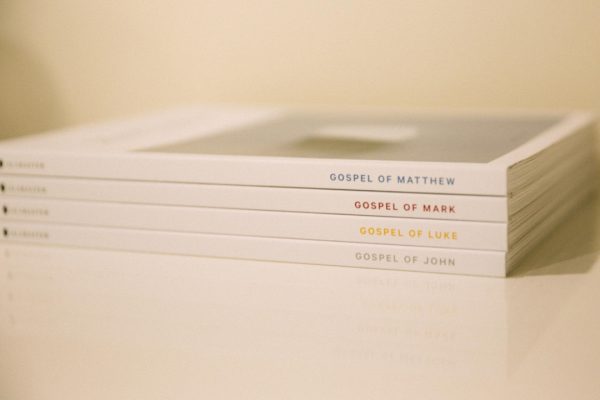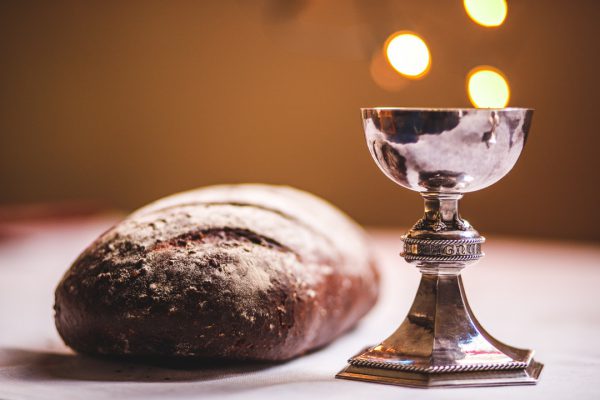In Genesis 23 we find the story of Sarah’s burial in the land of Canaan. This passage comes after God had begun to make promises to Abraham that he would be made a great nation, that he would have offspring as numerous as the stars, that he would have the land of Canaan as his inheritance, and ultimately that the world would be blessed through him (Gen. 12:1-3; 15:1-6; 17:1-8; 22:15-19).
Just like God had begun to fulfill his promise of offspring to Abraham by giving him his son Isaac, this story shows us how God was beginning to fulfill his promise of land to Abraham by giving him a burial plot as a permanent possession in Canaan. And as God’s people today, this assures us that the Lord will be faithful to fulfill his promises to us, who are sojourners living as exiles in this fallen world, waiting for our home in the new creation.
By Faith, Abraham Buys a Burial Plot in Canaan
The story begins with the death of Sarah, the mother of all Israel (Gen. 23:1-2). She died at 127 and is the only woman whose lifespan is recorded in Scripture. But the focus of this story is not merely her death, which is only recorded in two verses. Rather, the focus for the remaining 18 verses is on the negotiations over a burial place for her in Canaan.
After Abraham mourns for his beloved “princess” (Sarah’s name in Hebrew), he asks the Hittites for “property” among them to bury his dead. As a sojourner and foreigner living among them in Canaan, he owns no property and has no land to call his own (v.4), so he wants this land as his possession. In v. 5 the Hittites kindly offer “the choicest” of their tombs to him. But Abraham wanted to buy a piece of property that would be his permanent possession in the land. So, he requests the cave of Machpelah from Ephron the son of Zohar. He wants to buy it for the full price, in their presence, so it is officially and publicly recognized as his possession (Gen. 23:7-9). Abraham knows God has promised him this land, a land he does not own. This is Abraham asking in faith, requesting this land, trusting in God to provide.
In verses 10-16 we see Ephron’s response to Abraham. Like the Hittites, Ephron wants to give the field and the cave to Abraham as a gift (Gen. 23:11). But a gift wouldn’t be as secure as owning the land himself. So, Abraham insists on paying for it so that it is officially and publicly becomes his possession (23:12-13). In response, Ephron gives him the price of 400 shekels of silver, and Abraham buys it, without haggling or complaining, for the agreed upon price (23:16).
Finally, in vv.17-18 we have the transaction stated: Ephron’s field and the cave in it was given to Abraham “as a possession.” By faith, Abraham had successfully purchased a burial site in Canaan.
By Faith, Abraham Buries Sarah in Canaan
Just as the story begins with Sarah’s death in Canaan, it now concludes with her burial in Canaan, in the cave that came to belong to Abraham as a permanent possession. By faith, Abraham buried Sarah in Canaan, knowing that God was beginning to fulfill his promise to him that he would possess the land. Not only was Sarah buried there, but Abraham, Isaac, Rebekah, Leah, and Jacob, and Joseph as well. All the patriarchs were buried in this field that Abraham purchased by faith in Canaan.
The significance of this burial plot is that God was giving this piece of land to Abraham as a token, a down payment, the “firstfruits” of the promised land. Even while Israel did not have full possession of the land, this cave in the corner of Canaan served as a unsuspecting sign that God was indeed fulfilling his promises to Israel, and the patriarchs desire to be buried there was symbolic of their faith in God’s promise. And that promise was fulfilled when Israel came to possess the land under Joshua:
Thus the LORD gave to Israel all the land that he swore to give to their fathers. And they took possession of it, and they settled there. And the LORD gave them rest on every side just as he had sworn to their fathers. Not one of all their enemies had withstood them, for the LORD had given all their enemies into their hands. Not one word of all the good promises that the LORD had made to the house of Israel had failed; all came to pass (Joshua 21:43-45).
By Faith, We Desire a Better Country
What does this have to do with us? With Jesus, whom we are told is the son of Abraham (Matt. 1:1), the promise of a homeland for God’s people today has been expanded to the entire world. In Psalm 2:8 God promised his Anointed One that he would make the nations his heritage, and the ends of the earth his possession. Jesus declared that the meek will inherit the earth (Matt. 5:5), and by his death and resurrection, Jesus expands God’s promise from the land of Canaan to the whole earth, so that Paul could say that Abraham was actually heir of the world (Rom. 4:13). Thus, we can say that Canaan was a foretaste, a type of God’s promise to make the world our inheritance.
And just like Abraham and Israel, we still await the full and final fulfillment of this promise of land. We die like the patriarchs, as Hebrews tells us, not seeing the promise completely fulfilled (Heb. 11:9-14). We live and die as exiles, wandering and waiting for “a new heavens and new earth, where righteousness wells” (2 Pet. 3:13).
But just like Sarah’s burial plot was the down payment or the “firstfruits” of Israel’s inheritance in Canaan, the empty tomb of the risen Lord Jesus is the down payment of our inheritance in the new creation (1 Cor. 15:20-23). Christ’s death on the cross and his resurrection is the guarantee that his promises to us will be fulfilled. Jesus’ blood pays for the burial plot, where our sins are buried, and his empty tomb is the pledge and firstfruits of our life in the age to come.
And just like death could not stop the patriarchs from entering their inheritance, so death cannot keep us from feasting forever with our risen King in the new creation. For those who have trusted in Jesus for salvation, Peter says we have been born again to a living hope, through the resurrection of Jesus Christ from the dead to an inheritance that is imperishable, undefiled, and unfading, kept [now] in heaven for us, who by God’s power are being guarded through faith for a salvation ready to be revealed in the last time (1 Pet. 3:3-5).
As we consider this story and God’s promises being fulfilled to his people, it helps us live with faith of Abraham. We can be assured of God’s faithfulness as we wait for our home in the new heavens and earth. Just like Sarah was buried in Canaan as a down-payment of Israel’s inheritance of that land, we now bury our loved ones, knowing that those who are united with Jesus in his death will be united with him in his resurrection on the last day. We bury them in faith, trusting that God will fulfill his promises, in his own timing, like he always does.




